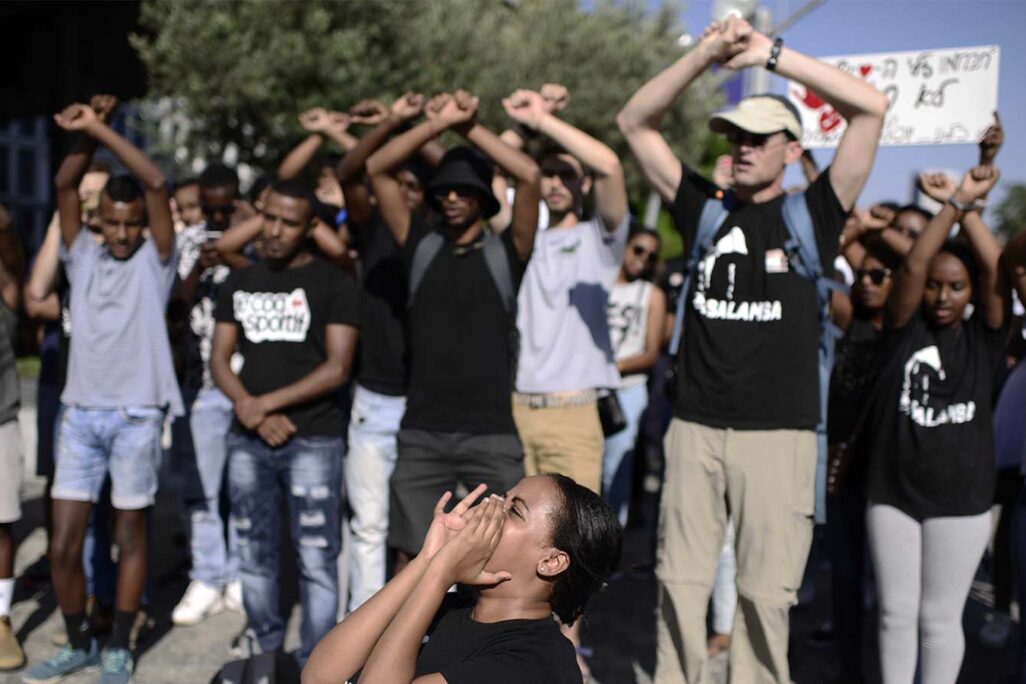
“Israel is a country of hypocrites,” wrote producer and Youtuber Shlomi Lakau (24) on his Youtube page, in a post that accrued thousands of shares within hours. “When we black people took to the streets to protest the police murdering our black brothers, they called us hooligans, savages, and primitives, but now that George Floyd has been murdered in America, and everyone is going nuts at protests all day and all night, suddenly you’re all saying, 'way to go' and 'this isn’t right,' raising awareness of the Black Lives Matter movement, and using all the hashtags."
“Just to make things clear, when it happens here in Israel, when your friends and neighbors go out to protest something that isn’t okay, something that you know isn’t okay,, then our protest isn’t okay? Why, because we interfered with your freedom to shop at the mall? To tan at the beach? But when it happens abroad and the whole world and his brother supports the protest, suddenly you wake up? Suddenly you’re supporters? Suddenly you all care about racism? A bunch of hypocrites, that’s what you are.”
You’re just selling a giant lie to all of your followers"
Lakau wasn’t the only celebrity to speak out. Tahuonia Rubel, one of the most successful women in Israel’s fashion and media industries, published a scathing Instagram post: “For three days now I’ve been scrolling through social media and seeing ‘moving’ solidarity posts from all you industry personalities who have platforms and followers who believe each slogan you post, but you don’t understand any of it. You’ve forgotten one little thing – that you live here, in Israel. You’re just selling a giant lie to all of your followers who might be tricked into thinking that you stand in solidarity."
“All the pain that ‘black people’ endure, that you so naively tweet about, is experienced here too. I don’t remember any of you posting a black picture to your feeds when we blocked highways, when you called us hooligans, when we broke glass, when we burned tires, when we cried the names of Yosef Salamse [22, died under suspicious circumstances after being subjected to police violence in 2014 – ed.], Salomon Taka [18, shot to death by an off-duty police officer in 2019 , Yehuda Biadga [24, shot to death by police in 2019], and so many more mothers who cry for their children each day."
People feel free to express support because it’s not their responsibility”
Dr. Shula Mola, 47, one of the founders and most well-known activists of the anti-police violence group Mothers on Guard, has a theory why Israelis support the American protests. “It’s not because white Israelis connect with African Americans,” she told Davar. “This recent incident was filmed from all angles, and not even the most evil people can come up with an excuse for it. It was far away, so people feel free to express support, it’s not their responsibility and nobody expects them to do anything. On the other hand, if the same people were to express solidarity against incidents perpetrated by the system here, the very system which protects them and supports them – well, they wouldn’t be able to. It takes a lot of effort to stand up to that."
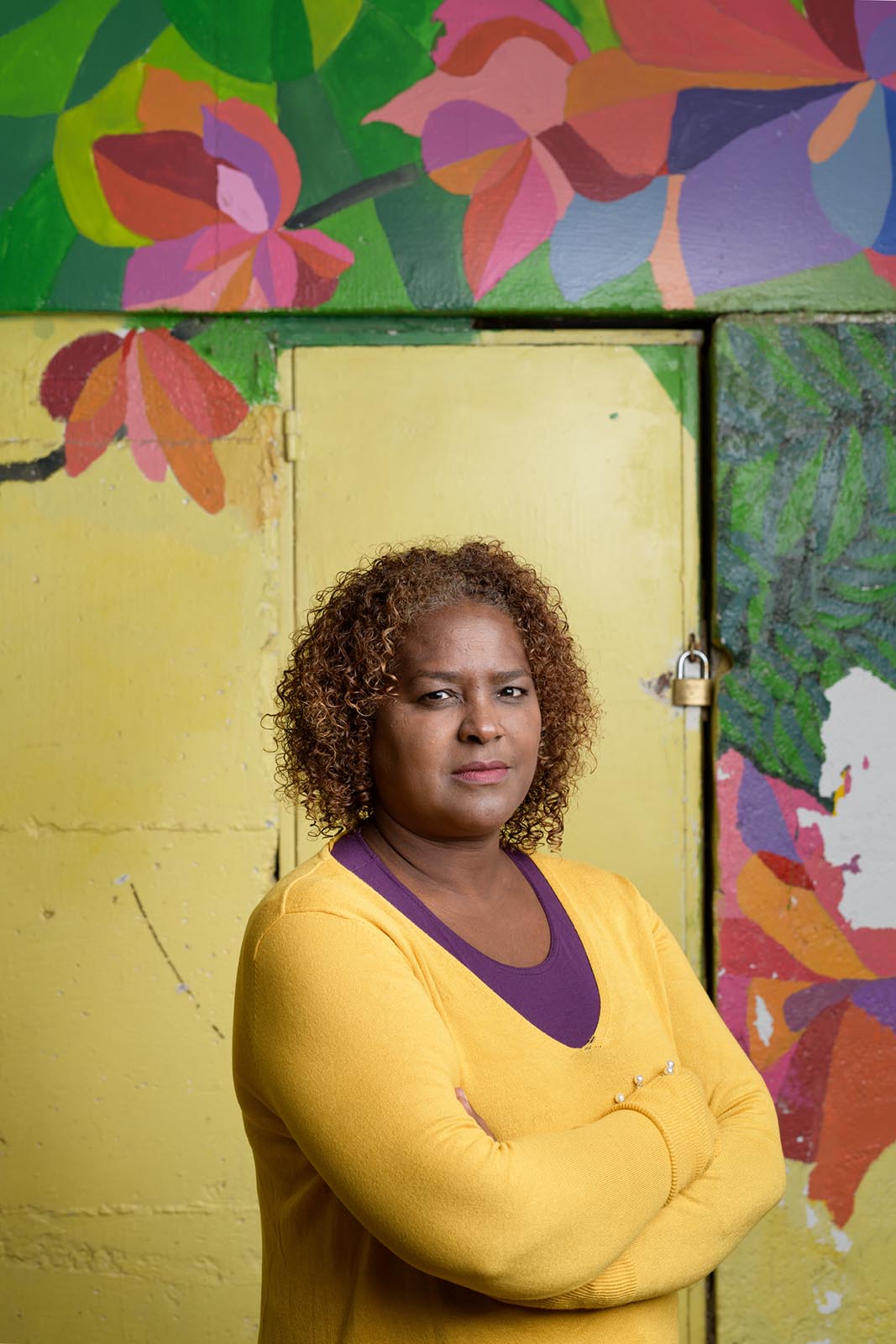
Mothers on Guard was founded in 2016 as a result of the police violence against Yosef Salamse, z”l. After Salomon Taka was shot and killed by police last year, the group began to protest outside of police stations. “There was enormous societal trauma. I felt like I was grieving, like I felt when my father passed away. It was a feeling deep in my stomach that something wasn’t working," Mola said. "There was such a stark rift between the entire Ethiopian community rising up, and the millions who stood by and couldn’t so much as denounce what had happened, who instead just looked for excuses."
"Most Israelis, even those who consider themselves to be liberals, are preoccupied with assuaging their guilt. I spent many years hiding my feelings about racism because people like it when I tell them that I found my place in Israeli society. But I’m done with that, I don’t coddle their sensibilities anymore.”
“We came here by choice,” Dr. Mola says in describing the differences between the Ethiopians’ protest in Israel and the movement taking place in America. “We fulfilled our ancestors’ legacy that compelled us to come to Jerusalem. That’s what happened to us, in contrast to the story of African-Americans who were enslaved as if they were animals, who were called less than human. But both here and there, white people think today that black people are less human. It’s the same phenomenon, at its root the racism is the same.”
It’s exactly what happened to my brother”
“Israeli society chooses to avert its eyes here and focus on protests there,” says Banchi Salamse, 37, older sister of Yosef Salamse, z”l, “Why should I stand in solidarity with what’s happening there but skip over what’s happening here? I relate to his last words, ‘I can’t breathe,’ that’s exactly what happened to my brother, who screamed ‘my heart isn’t alive.’ I see Yosef in George, but my solidarity for George is related to my experiences here.”
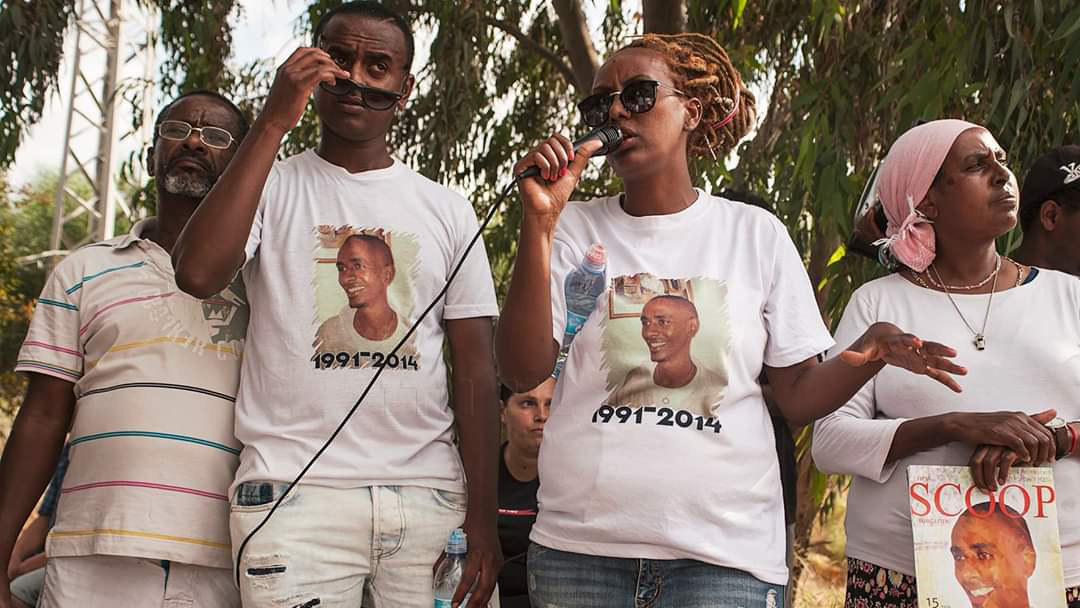
“I don’t remember white Israelis coming out to support the protests against police violence, and I ask myself why not. For example, Bar Rafaeli, who made a statement of support for George Floyd – go to hell! You think the same violence hasn’t happened here? She wants to create a certain image for her international business. I don’t understand white Israel’s hypocrisy, you saw the murders happening left and right, Iyad al-Hallaq for example [32 year old Palestinian man on the autism spectrum who was shot dead by Israeli police suspecting him to be a terrorist] so many injustices happen here. What’s the difference, exactly? Why the unequivocal support for them and not here?”
“I’m a celebrity in the Ethiopian community,” says Lakau. “White people or white cops who meet me don’t know who I am, to them I’m just like anyone else. Once I was in Tel Aviv and I stood by my car for about a minute. As soon as I got in and started the engine, a car came over at full speed to block me. Three undercover cops came out of the car and told me to turn my engine off. I raised my hands because I felt like they were about to punch me, then they saw that I had a key to the car and were shocked. They thought I had broken into the car. They checked my ID and released me.”
“White people don’t understand it. Even if you serve in the army together with Ethiopians, you don’t know what we go through on the weekends. Each of us has different stories about things we endure because of our skin color. It’s not just the cops, it’s society itself that makes you feel like you’re a dangerous person,” he said.
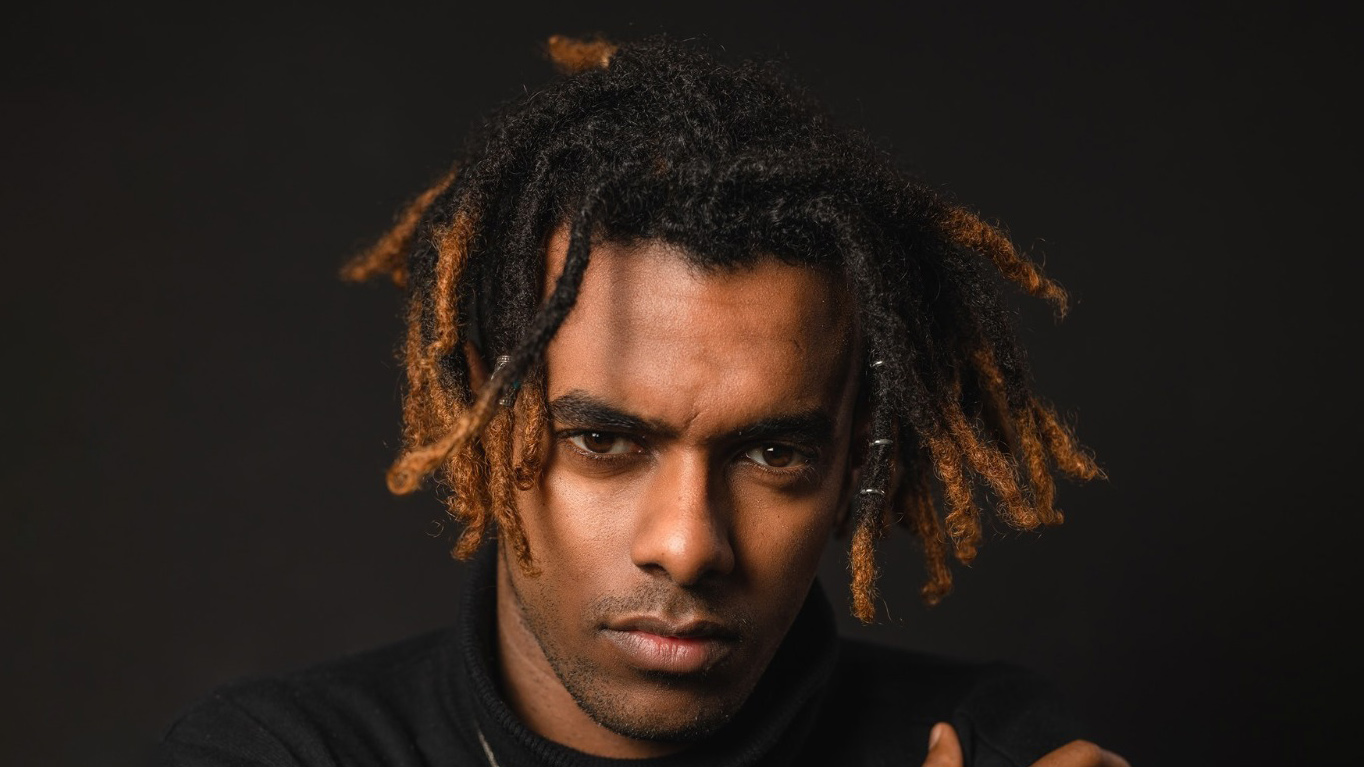
“I hope Israeli society wakes up and stops to take a breath and sees that it happens in Israel too,” Salamse said. ‘ [I hope] that all the people who told us that we ‘lost their support’ in the 2019 protests get woke and regain their humanity and see everything that’s happening to the black community, to Ethiopians, to Eritreans. You don’t have to be personally affected in order to be human, you don’t have to lose someone you love in order to understand another’s pain. I was involved even before Yosef fell victim to police violence, but when it’s close to you you understand and see even more. I hope people will look the problems in the eye.”
“I tell the truth,” says Dr. Mola. “I’m surrounded by liberal Jews, but most of them leave a wide gap between their words and their actions. They’re afraid to get into the debate, to be exposed to our perspectives, our feelings, our proof and our explanations. They’re afraid of that place because they’re afraid of change, because it would mean that they’d have to change."
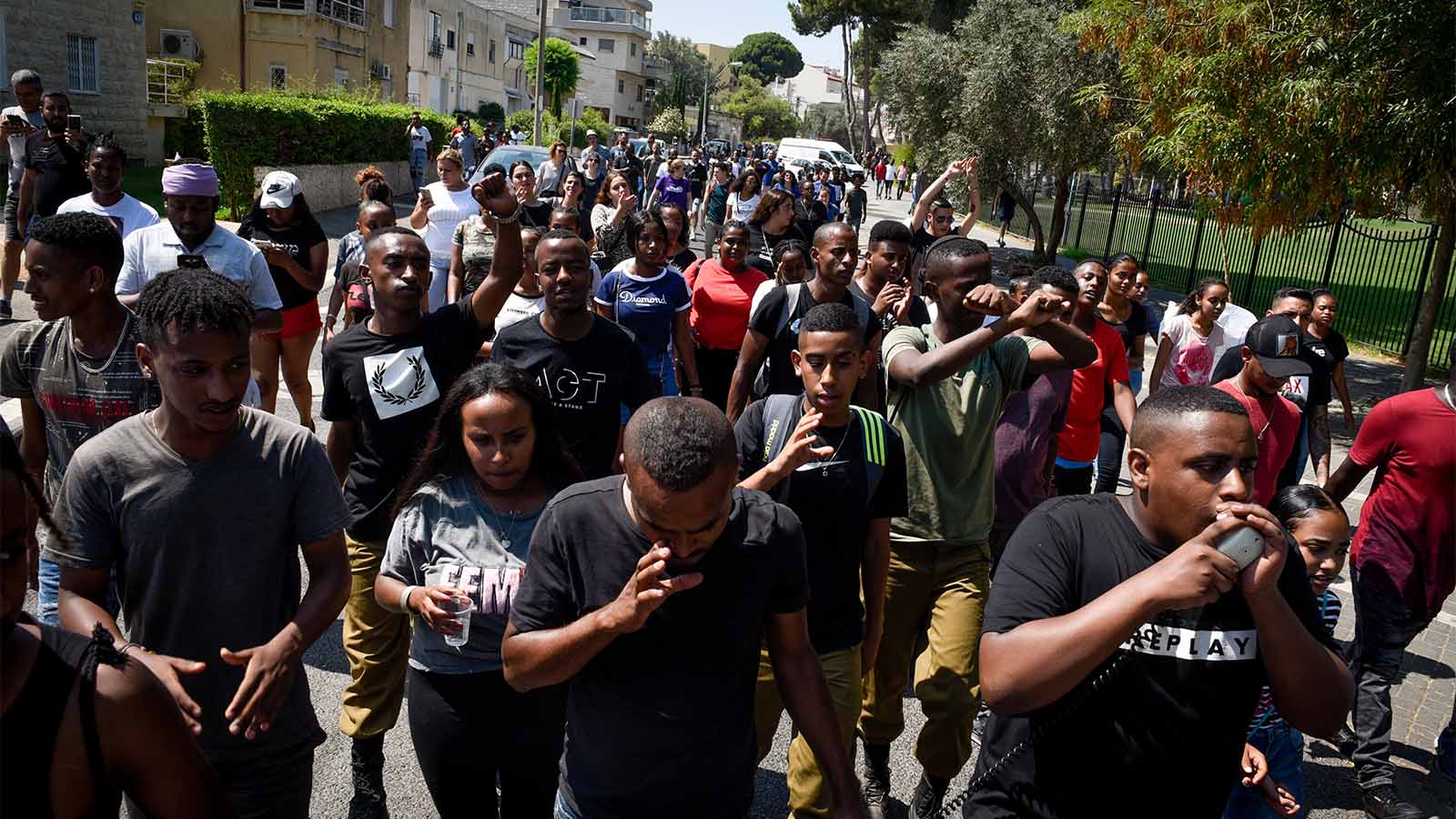
“Israeli society needs to accept what’s happened as a societal tragedy. They need to repair the damage, to learn, to stop looking for excuses,” Mola continued. “They should ask, to listen to those who have experienced racism. You have a responsibility. The fact that I’m rebelling doesn’t mean that I don't like my country, I’m doing it because this is my homeland.”






